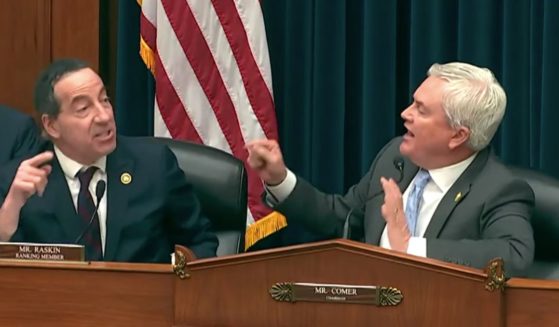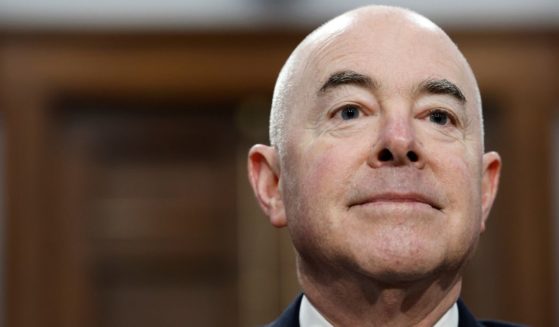Booming Trump Economy Threatened by Shortage of Nearly 1 Million Truck Drivers
The U.S. trucking industry is facing a shortage of drivers, a growing problem that could have major ramifications for the U.S. economy.
According to an October 2017 report from the American Trucking Associations, the industry as a whole needs to hire about 900,000 additional drivers just to keep up with rising demand.
Truckers are crucial to the U.S. economy, with the ATA estimating that more than 70 percent “of all freight tonnage is moved on the nation’s highways.”
The driver shortage is nothing new. The industry has struggled to find drivers for about 15 years, but during the Great Recession, the economic downturn meant there were less goods being transported, and thus, less of a need for drivers.
However, when the economy recovered, the driver shortage became an issue once again, with a recent industry analysis from DAT Solutions revealing that at the beginning of 2018, only a single truck was available for every 12 loads that needed to be sent out, The Wall Street Journal reported.
That was the worst ratio since 2005, when the the economy was facing the aftermath of Hurricane Katrina.
“In addition to the sheer lack of drivers, fleets are also suffering from a lack of qualified drivers, which amplifies the effects of the shortage on carriers,” ATA Chief Economist Bob Costello said in a news release.
“This means that even as the shortage numbers fluctuate, it remains a serious concern for our industry, for the supply chain and for the economy at large.”
Derek Leathers, who serves as the chief executive of Werner Enterprises, a trucking company based in Omaha, Nebraska, suggested there is a negative connotation surrounding truck drivers.
“Being a truck driver was something that carried a certain level of honor with it,” he told WBUR’s “Here & Now” last month. “They were kind of the ‘knights of the road,’ and we lost that somewhere along the way, and I think often trucks are portrayed as sort of this negative reality on the road.”
Part of the reason for the driver shortage has to do with demographics. The Bureau of Labor Statistics estimated that in 2016, the average trucker was 55 years old. Moreover, 94 percent of drivers are men.
“Demographics are working against the industry,” Leathers said.
“The trucking industry average age is about 10 years older than the average age across other comparable industries like manufacturing and construction. So as those retirements are taking place, we’re just not seeing the same level of new entrants into the industry.”
The driver shortage is not good for the U.S. economy, as it can lead to delayed shipments and high prices.
Bloomberg noted that in other industries, worker shortages can be easily remedied by increased pay or new hires. If that doesn’t fix the issue, then business will slow down, and the shortages won’t be an issue anymore.
But this is not the case in the trucking industry.
“The trucking industry is unique because it’s the lifeblood of moving goods around the country,” Bloomberg stated. “Without enough trucks and drivers on the road, some combination of things is going to happen: Shipments will be delayed, and producers will have to pay higher prices to get goods to market.”
The driver shortage has been evident in labor statistics, as employment levels in the industry have essentially stayed the same since 2015.
Companies are attempting to attract more drivers, but it’s unclear as to whether or not their efforts will work.
For example, a plethora of companies have raised pay for their drivers.
“Pay in the industry’s come up considerably. Here at Werner our pay’s up 17 percent over the last couple of years,” Leathers said. “First-year entrants into the industry now make around $50,000 a year depending on what part of the business they go in. So it’s a good job. It pays well; you can build a family around it. It’s about getting that awareness out there.”
Costello, meanwhile, emphasized the importance of making it easier for would-be truckers to enter the industry.
“Unless steps are taken to make it easier for individuals to pursue careers in trucking, demand for drivers will continue to outstrip supply — eventually even leading to supply chain disruptions,” he said, according to USA Today.
Truth and Accuracy
We are committed to truth and accuracy in all of our journalism. Read our editorial standards.












